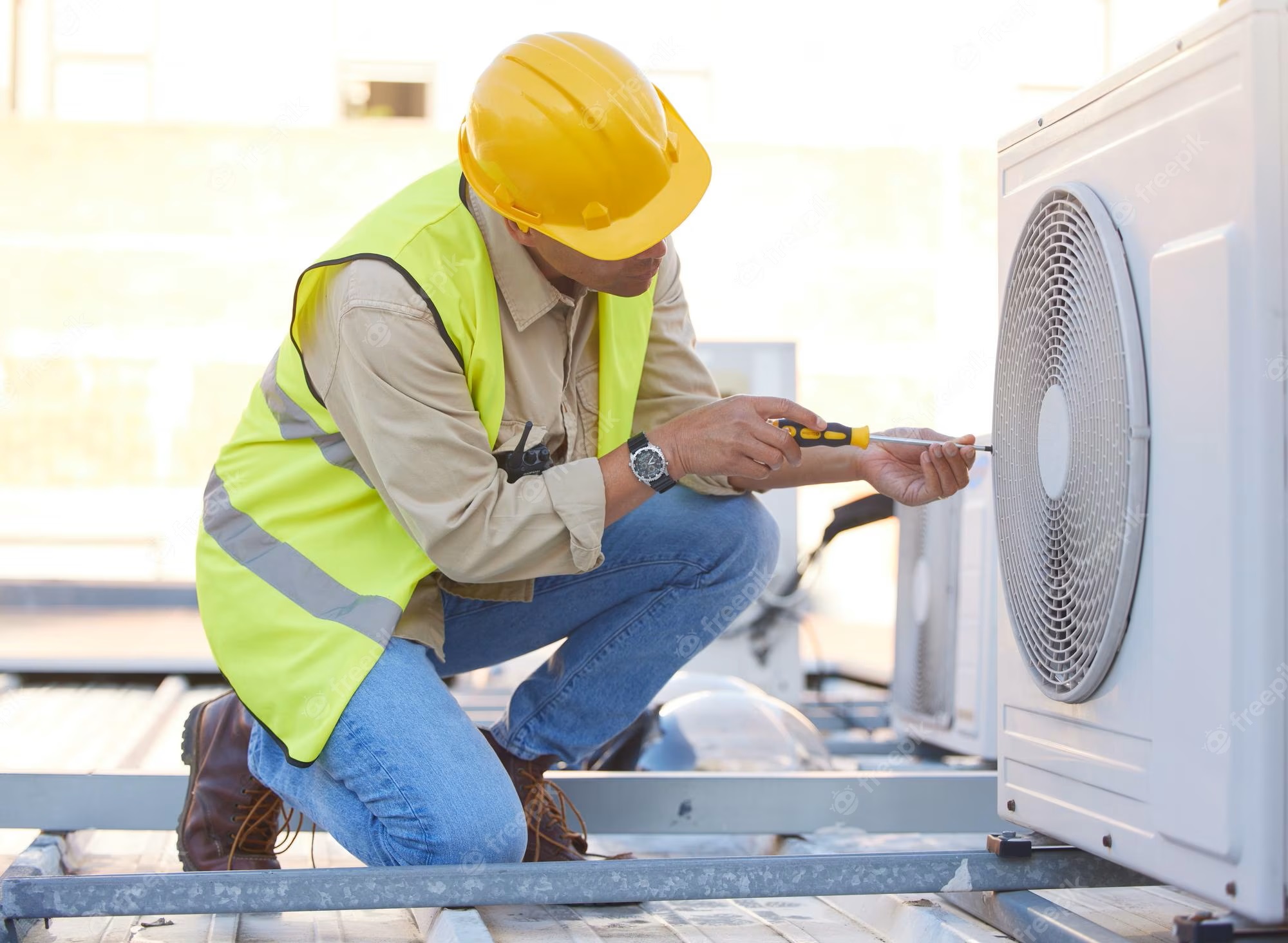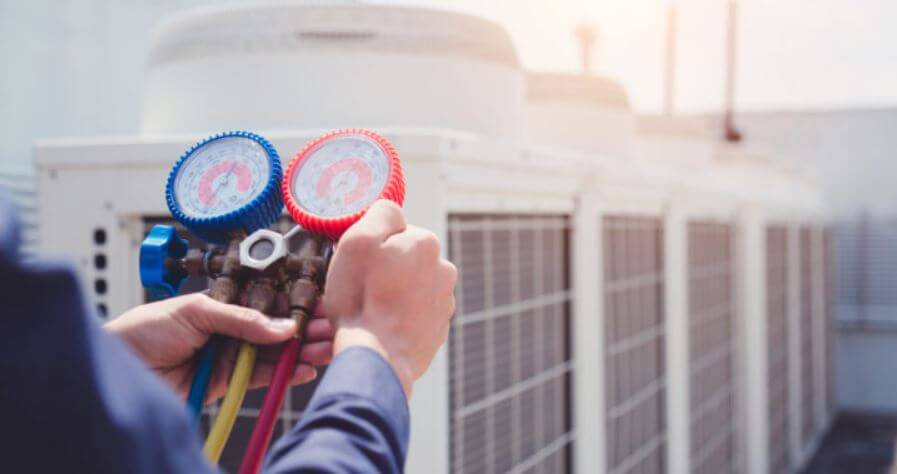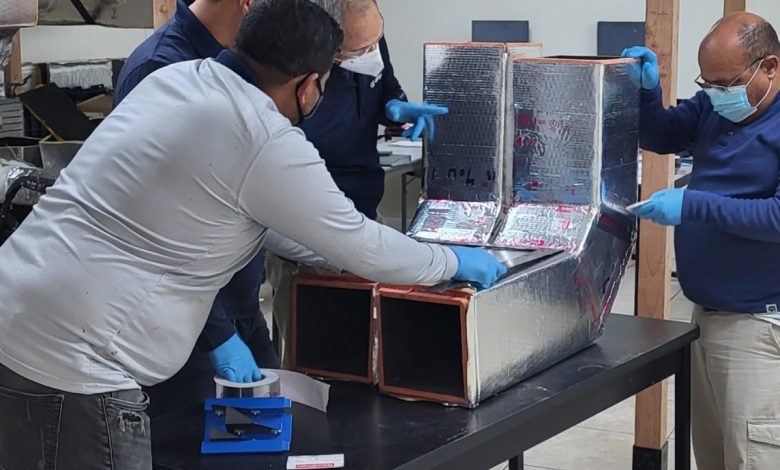AC Installation Canoga Park HVAC Installation & Replacement

HVAC systems embody a broad vary of functions beyond simply cooling. They incorporate heating systems, which may embrace furnaces or heat pumps to maintain up heat during colder months. Ventilation is one other important aspect, liable for exchanging or changing air in an area to maintain air quality and take away moisture, odors, and pollution. This comprehensive approach to indoor climate control contrasts sharply with air conditioning, which solely addresses temperature regulation.
Air conditioning systems are sometimes designed to cool a space by removing heat from the indoor air. These techniques operate by circulating refrigerant via a sequence of coils, absorbing heat from the air inside a building and releasing it outside. This process not solely lowers the temperature but can even scale back humidity levels, creating a extra comfy surroundings. However, air conditioning fails to supply heating or ventilation, that are essential for year-round climate control.
The variations in complexity between HVAC and air conditioning systems are important. An HVAC system is extra complex and consists of multiple components working collectively. In addition to air conditioning units, HVAC systems commonly contain components like ductwork, thermostats, and varied controls. These components work in harmony to ensure that a constructing remains snug throughout varying weather circumstances.
Energy Efficiency HVAC Canoga Park Tips for Hiring an HVAC Contractor
Maintenance necessities also differ between HVAC systems and standalone air conditioning methods. Regular maintenance of HVAC techniques includes checking all components, from the furnace and air conditioner to ventilation ducts. Ensuring that these components perform accurately is crucial for general system efficiency and longevity. In contrast, maintaining an air conditioning unit primarily involves cleansing or replacing filters, checking refrigerant ranges, and ensuring that the condenser is clean. While air conditioning items require care, the scope is narrower than that of comprehensive HVAC systems.
Energy efficiency is another key area the place distinctions arise. Modern HVAC systems are designed to maximize power efficiency and may embody options such as programmable thermostats and variable velocity followers. These features help reduce energy consumption, which may be particularly useful in regions with excessive temperatures. Air conditioning units also have power efficiency ratings, but they lack the holistic options that an HVAC system provides, finally impacting overall power use in a constructing.

In terms of system types, HVAC can incorporate a number of designs. These would possibly embrace central systems, break up methods, and packaged methods, each helpful in numerous purposes relying on the scale and format of the building. In contrast, air conditioning techniques are primarily outlined by sorts such as window items, moveable items, break up systems, and central air conditioning, which primarily serve the cooling operate.
Indoor Air Quality Canoga Park HVAC Instant Rebate Program - Find a Contractor
The initial installation prices can even range significantly between HVAC and air conditioning techniques. A full HVAC system typically requires a better upfront investment as a end result of its complexity and range of options. However, the long-term savings on energy payments and maintenance can justify this investment. Air conditioning models, whereas generally cheaper, may not present the same stage of efficiency and luxury benefits over time.
Climate influence issues play a job in the dialogue between HVAC and air conditioning systems. HVAC techniques can improve air circulation and air flow, which is important for sustaining wholesome indoor air quality. Proper air flow removes indoor pollution and moisture, lowering the chance of well being points associated to poor air quality. Air conditioning techniques alone do not handle these points and primarily give attention to cooling, which may lead to stagnant indoor air if not paired with enough air flow options.
Local HVAC Contractor Canoga Park HVAC Installation & Replacement
Installation professionals typically require specialized coaching in HVAC because of its complexity. This training encompasses various features of heating, cooling, air flow, and the interrelationship between these functions. Successful installation of an HVAC system demands a deeper understanding of how these components work together to create a comfortable indoor surroundings. In contrast, air conditioning specialists might focus solely on cooling systems, limiting their scope of experience.
In summary, recognizing the variations between HVAC and air conditioning can guide decision-making in terms of choosing systems for residence or commercial areas. HVAC methods supply comprehensive control over the indoor environment by delivering heating, cooling, and air flow options. AC Installation Canoga Park. Air conditioning, whereas essential for cooling, represents only one side of indoor climate control. Investing in an HVAC system can result in more practical temperature regulation, improved air quality, and energy savings over time.
HVAC Troubleshooting Canoga Park Find a Local Plumber or Licensed HVAC Contractor
Ultimately, understanding these distinctions can result in knowledgeable selections about climate control techniques. Whether you lean in the direction of a full HVAC wikipedia reference setup for year-round consolation or a simpler air conditioning solution for immediate relief from the heat, being informed empowers efficient decision-making that meets both comfort and budgetary needs.
- HVAC (Heating, Ventilation, and Air Conditioning) encompasses a broader spectrum of climate control, while air conditioning focuses solely on cooling indoor spaces.
- HVAC methods embody heating components like furnaces or heat pumps, guaranteeing consolation throughout colder months along with cooling.
- Ventilation is a key side of HVAC, facilitating recent air circulation and bettering indoor air quality, which air conditioning doesn't handle instantly.
- Energy efficiency requirements could differ; HVAC techniques usually goal for a balanced method to vitality use across heating and cooling, while air conditioners primarily focus on cooling efficiency.
- HVAC methods can embrace dehumidifiers and air filtration technologies, enhancing indoor comfort by controlling moisture and allergens, features typically absent in commonplace air conditioning items.
- The installation and maintenance necessities for HVAC systems are generally more advanced, necessitating specialised data and repair in comparison with typical air conditioning units.
- HVAC solutions could use zoned techniques for targeted temperature control in different areas, whereas air conditioning units normally cool whole areas uniformly.
- Cost implications differ, as HVAC systems incorporate multiple functionalities and can be costlier initially, whereas primary air conditioning units can be extra budget-friendly.
- The operational framework differs: HVAC methods typically work via a community of ducts for airflow, whereas many air conditioning models operate through standalone setups or window placements.
- Regulations and licensing for HVAC professionals usually require extra extensive coaching due to the system's intricacies, whereas air conditioning technicians might have less stringent necessities.
What is the first difference between HVAC and air conditioning?
MERV Filters Canoga Park Commercial HVAC Services
HVAC stands for Heating, Ventilation, and Air Conditioning, whereas air conditioning refers particularly to cooling an area. HVAC methods supply comprehensive climate control, together with heating and air flow.
Why is HVAC thought-about more complex than air conditioning?
HVAC systems combine a quantity of functions—heating, cooling, and ventilation—requiring a network of interconnected components, making it extra complex than commonplace air conditioning items that only manage cooling.
HVAC Installation Canoga Park HVAC Contractor, Heating & Air Conditioning
Can a house have air conditioning without an HVAC system?

How do HVAC methods enhance indoor air quality?
Zone Control HVAC Canoga Park AC & Heating Repair Services - HVAC Contractor
HVAC techniques embrace filtration and air flow features that help take away pollution, control humidity, and circulate fresh air, thereby enhancing indoor air quality extra successfully than air conditioning items alone.
Are HVAC systems more energy-efficient than air conditioning units?
Generally, HVAC techniques may be extra energy-efficient as they're designed to regulate all aspects of climate control. However, efficiency depends on the precise fashions and applied sciences used.
Can I exchange my air conditioning unit with an HVAC system easily?
MERV Filters Canoga Park Book Fireplace, Furnace, AC, & Heat Services
Replacing an air conditioning unit with an HVAC system requires cautious planning and may involve further installation prices, as you should integrate heating and ventilation components into your present house.
HVAC techniques usually require more extensive maintenance, including checking varied components like thermostats and ductwork. In contrast, air conditioning units often want easier maintenance, like filter changes.
HVAC Maintenance Canoga Park Find a Contractor
How do I determine if I need HVAC or visit this website just air conditioning?
(Indoor Air Quality Canoga Park)

Are there any cost variations between HVAC and air conditioning systems?
HVAC Services Canoga Park Air Conditioning and Heating - HVAC Contractor
Yes, HVAC techniques usually come with larger upfront installation prices and ongoing maintenance fees, whereas air conditioning items are typically more inexpensive but may incur larger operating costs if used extensively. HVAC Installation Canoga Park.